Hesi Feeding Chart | Usage Guide

- 1. Hesi boosters
- 1. a. Root complex
- 1. b. Supervit
- 1. c. Powerzyme
- 1. d. Boost
- 2. Hesi fertilizers for soil
- 2. a. Tnt complex
- 2. b. Bloom complex
- 2. c. Phosphorus plus
- 2. d. Hesi feeding schedule for photoperiodics in soil (ml/l)
- 3. Hesi fertilizers for coco
- 3. a. Coco
- 3. b. Pk 13/14
- 3. c. Hesi feeding schedule for photoperiodics in coco (ml/l)
- 4. Hesi fertilizers for hydro
- 4. a. Hydro growth
- 4. b. Hydro bloom
- 4. c. Hesi feeding schedule for photoperiodics in hydro (ml/l)
- 5. Hesi feeding schedule for autoflowers
- 5. a. Hesi feeding schedule for autoflowers in soil (ml/l)
- 5. b. Hesi feeding schedule for autoflowers in coco (ml/l)
- 6. The difference between macro and micronutrients
- 6. a. Nutrient mobility
- 6. b. Macronutrients
- 6. c. Micronutrients
- 7. In conclusion
HESI Plantenvoeding B.V. or just HESI is a company focused on plant fertilizers based in The Netherlands; Their high-quality nutrients and plant supplements provide a balanced composition for each stage of plant growth but unlike other companies, they provide products for universal use instead of a specific line for each plant species, meaning that their fertilizers can be used in all types of plants, including cannabis seeds in indoor or outdoors setups. Due to their universal and easy-to-use approach, the company has expanded all over the world, including Europe, North America, South America, and Asia, becoming one of the most popular fertilizer brands nowadays.
So for those of you that want to make a change or want to learn the best way to use HESI products, here you’ll learn a bit more about HESI products, how to best use their fertilizers and boosters, and a feeding schedule for both autos and photos in any type of substrate!
1. HESI Boosters
Hesi boosters help provide a richer substrate, giving your plants the extra kick they need for an improved metabolism. These products contain extra elements that complement the fertilizers, boosting their effectiveness while being pH and EC-neutral.
Root Complex
Root Complex is a stimulator designed to promote healthy roots while activating the microorganisms in the soil to provide a better nutrient absorption which leads to healthier and stronger plants.
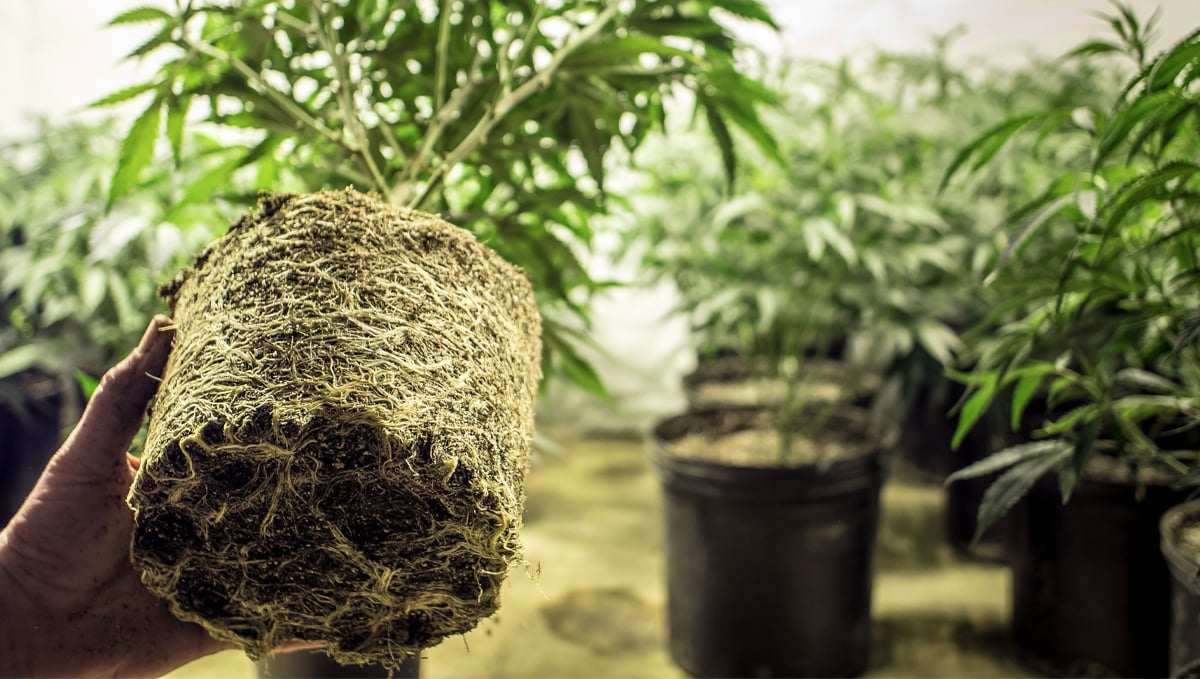
This product enhances the conditions in the substrate for better root growth while helping reduce stress and improving plant metabolism, making it ideal for those looking to improve root growth and avoid stress.
Contents:
- Iron, Manganese, Zinc, Copper, Boron, Molybdenum;
- Vitamins B1, B2, Folic Acid, Plant Sugar, and Amino Acids.
How and When to Use It
Hesi Root Complex is suitable for use with plants throughout the entire lifecyle. When used for mothering plants, seedlings, or clones just starting out, a rate of 25 ml per 10 liters of feed water should be perfect. For established plants that have already reached the vegetative growth stage that dosage can be doubled to 50 ml per 10 liters of water.
SuperVit
SuperVit is a concentrated stimulator containing 15 vitamins and 10 amino acids that are the base of general plant metabolism, these elements play an important role in photosynthesis while helping control the growth of leaves and buds.
How and When to Use It
Hesi SuperVit is an extremely concentrated product, and as such, it should be used sparingly. It can be used as an additive to the nutrient feed solution, or as a foliar spray. If used with the feedwater, dose at a rate of 2 to 3 drops per 10 liters of water. This can be dropped down to 1 drop per 10 liters of water when the plant is in the initial growth stage. For foliar spray usage, use the same concentration as for watering. If spraying a large and well-established crop, use 1 ml for every 50 liters of water.
PowerZyme
PowerZyme provides cellulase from trichoderma fungi which help decompose the cellulose of dead organic matter into dextrose, converting it into food for the roots and living microorganisms in the substrate. This product also promotes a better oxygenation of the substrate, by interacting with the roots, substrate, and beneficial microorganisms thus helping you achieve biological balance.
Contents:
- Cellulase-extract from Trichoderma viride.
- Enzymes
How and When to Use It
HESI PowerZyme is suitable for use in any cultivation system including hydroponics, coco coir, or soil-based substrates. It can be added to your nutrient protocol from the very beginning of the growth right up to the final flush. This product should never be used as a foliar spray, only added to the feed water. If used as a foliar spray it can induce severe light burn. Dose your nutrient solution with HESI PowerZyme at a rate of 2ml per liter of water. This should not be added with every feed, only 2 times weekly at the maximum, with 1 dose per week usually being sufficient.
Boost
Boost is a flower booster containing a mix of fruit enzymes, plant sugars, and other fruit extracts that make it highly effective for a faster start of the flowering stage while promoting bigger and denser flowers.

Apart from improving flower formation, the special nutrient blend also increases foliage health while strengthening the stem and branches, resulting in an overall healthier plant and better bud quality.
| Nitrogen (N) | Phosphorus (P) | Potassium (K) |
|---|---|---|
| 0 | 1 | 1 |
Hesi offers a couple of fertilizers for different grow setups, either soil, coco, or hydro, they have what you need. Each of these products provides what your plants need based on the characteristics of each substrate, for example, providing more calcium when growing in coco fiber due to coco being inert.

Other examples are: providing more beneficial microorganisms in soil due to your plants being in organic matter, or providing exactly what your plants need in hydro due to the roots being exposed to the nutrient solution. Despite providing the same nutrients a cannabis or any other plant needs for healthy growth, they do it in slightly different ways and concentrations, optimizing nutrient absorption and minimizing nutrient burn and overfeeding.
How and When to Use It
Keep in mind that Hesi BOOST is not a complete nutrition solution. This is a flowering stimulant and additive, so it is very important to use in conjunction with a flowering or bloom nutrient fertilizer. Hesi BOOST should not be used during the vegetative growth stage. It can be used as an additive to the nutrient feed solution, or as a foliar spray. When using any foliar spray during the flowering growth stage it is critical to never spray the budding sites. Direct feeding to the budding sites can cause the rotate of flower production to decrease, the quality of the flowers to drop, and it can have a negative effect on the final yield.
2. Hesi Fertilizers For Soil
As mentioned before, Hesi provides a unique NPK ratio for each specific growing medium, so when growing in soil their products provide quite a lot of amino acids and vitamins that promote healthier growth while also providing a good amount of potassium and phosphorus for the second half of the flowering stage.
TNT Complex
TNT complex is a 100% organic fertilizer designed for the vegetative stage that provides high levels of nitrogen while also providing vitamins, amino acids, and sugars that promote healthier plant growth. This product enhances green matter development, allowing your plants to grow stronger and greener foliage without causing problems related to pH or nutrient toxicity.
| Nitrogen (N) | Phosphorus (P) | Potassium (K) |
|---|---|---|
| 3 | 2 | 3 |
Bloom Complex
Bloom complex is a mineral and organic fertilizer designed for the flowering stage that provides the basic macronutrients and some of the micronutrients your plants need during the flowering stage, while also providing vital amino acids and vitamins that promote a healthy and exuberant flowering.
| Nitrogen (N) | Phosphorus (P) | Potassium (K) |
|---|---|---|
| 3 | 3 | 4 |
Phosphorus Plus
Phosphorus plus provides that extra phosphorus and potassium needed for dense flowers during the second half of the flowering stage, which is when cannabis plants fatten up the buds and when they need this extra help the most.
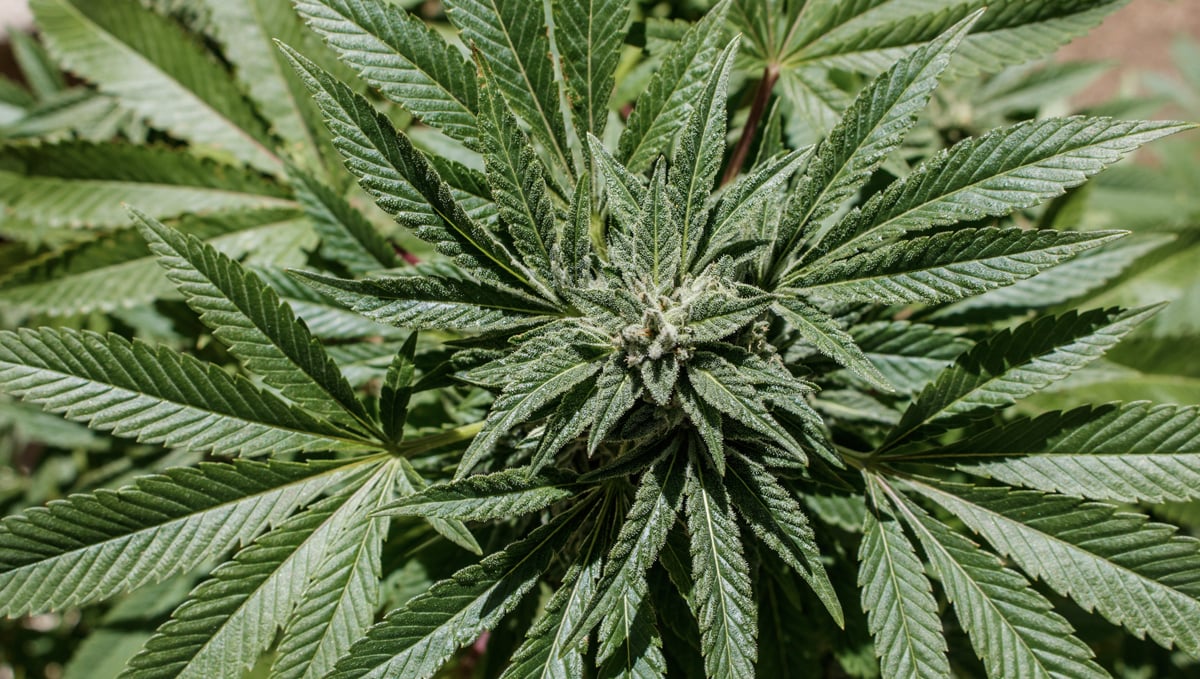
As the buds develop and fatten up, they will an increased amount of the elements mentioned so this product provides what your plants need at the right time, promoting a faster and healthier flower formation that results in an overall better harvest without having to worry about nutrient deficiencies.
| Nitrogen (N) | Phosphorus (P) | Potassium (K) |
|---|---|---|
| 0 | 7 | 5 |
If you were looking for the best feeding schedule for photos in soil, here’s exactly what you need; Just remember that the boosters contain the vitamins and amino acids that the base fertilizer does not, so despite not being obligatory it’s highly recommended to avoid nutrient deficiencies.
Hesi Feeding Schedule For Photoperiodics In Soil (ml/L)
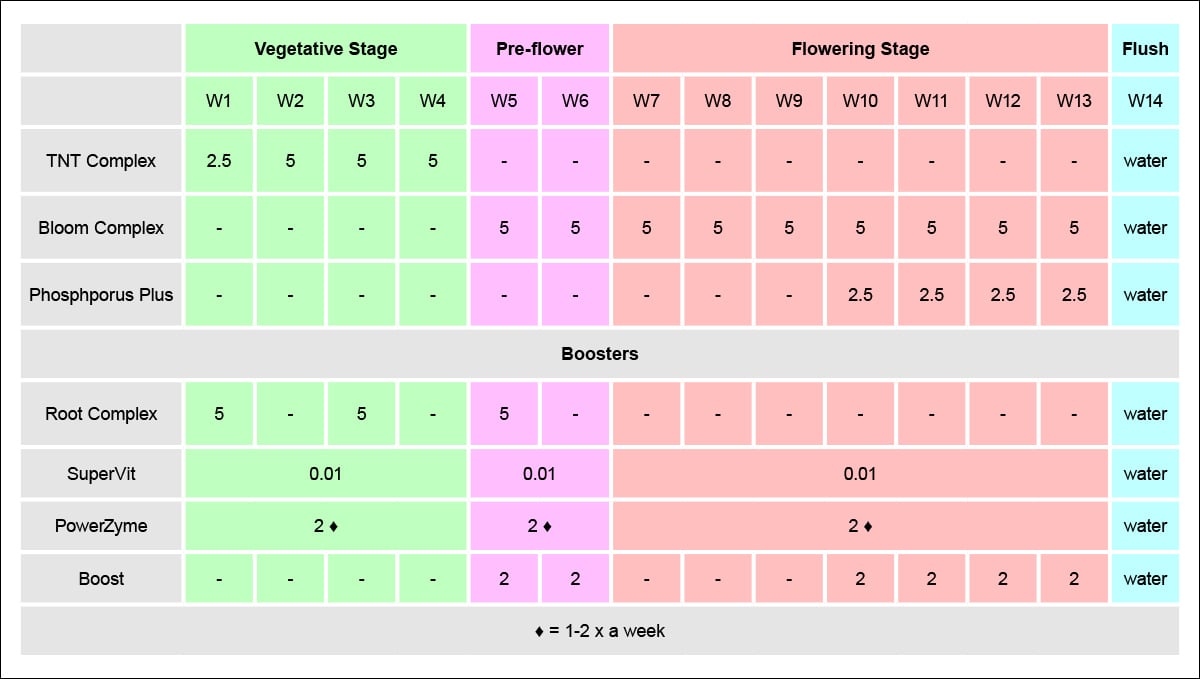
Remember that these amounts are when growing in optimal conditions so depending on your grow setup and growing conditions, you should always look for signs of deficiencies or toxicity and adjust the nutrient dose to avoid stunting growth.
3. Hesi Fertilizers For Coco
Now due to coco fiber being an inert medium, you need to provide more phosphorus and potassium, this is why instead of Phosphorus Plus, you'll be using PK 13714.
Coco
Coco is a fertilizer specifically designed for growing in coco fiber, unlike other brands, HESI designed a product that combines everything that a two-part (such as the common A+B) product contains, providing all the micro and micronutrients that the boosters don’t contain.
| Nitrogen (N) | Phosphorus (P) | Potassium (K) |
|---|---|---|
| 3 | 4 | 5 |
PK 13/14
Just like Bloom complex, PK 13/14 is a flowering booster designed to provide the higher amounts of phosphorus and potassium your plants need in the second half of the flowering stage when growing in coco fiber. This product allows your plants to work at full power, producing high amounts of the enzymes needed for a superior flowering stage, ensuring your plant isn’t overfed and that the flowers fatten up as they should.
| Nitrogen (N) | Phosphorus (P) | Potassium (K) |
|---|---|---|
| 0 | 9 | 7.2 |
Now for photos in coco, you’ll be using some of the products used in soil but you’ll have to change this up a bit, so you’ll be using HESI Coco and PK 13/14 which will provide what a plant needs when growing in an inert substrate such as coco fiber.
Hesi Feeding Schedule For Photoperiodics In Coco (ml/L)
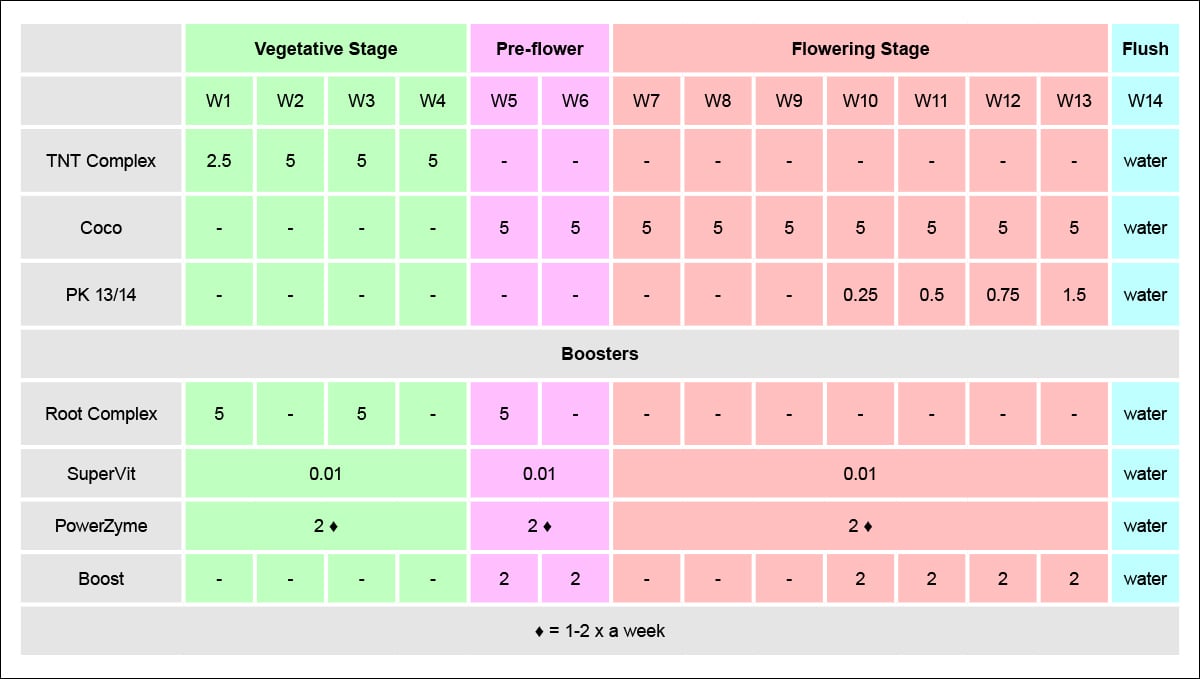
Have in mind that when growing in coco you should check the pH to avoid nutrient lockout, Hesi products contain pH stabilizers but it's essential to know the pH and EC of your source of water before starting your grow cycle.
4. Hesi Fertilizers For Hydro
As you may know, when growing in hydro or aeroponics, the roots are in direct contact with the nutrient solution, that's why you'll be needing to be a bit careful to avoid stunting growth so it's essential you use Hydro growth and Hydro bloom due to the specific NPK ratio that avoids overfeeding.
Hydro Growth
Hydro growth is a fertilizer designed for the vegetative stage when growing in hydro or aeroponics, this product contains more nitrogen which is the macronutrient that plants need the most during green matter growth while being fully adapted for any type of hydroponic or aeroponic growing setup.
| Nitrogen (N) | Phosphorus (P) | Potassium (K) |
|---|---|---|
| 3 | 2 | 4 |
Hydro Bloom
Hydro bloom, just like Hydro growth, is also adapted for hydroponic and aeroponic grow setups but provides higher amounts of phosphorus and potassium, which is what plants need during the flowering stage, and in combination with PK 13/14, will fulfill all of your plants needs to produce resinous and dense flowers.
| Nitrogen (N) | Phosphorus (P) | Potassium (K) |
|---|---|---|
| 3 | 4 | 5 |
When growing in hydroponics and aeroponics you’ll be using the same PK 13/14 just like in coco, but due to the roots being directly exposed to the nutrient solution, you need to use Hydro growth and Hydro bloom to avoid nutrient deficiencies or nutrient toxicity.
Hesi Feeding Schedule For Photoperiodics In Hydro (ml/L)
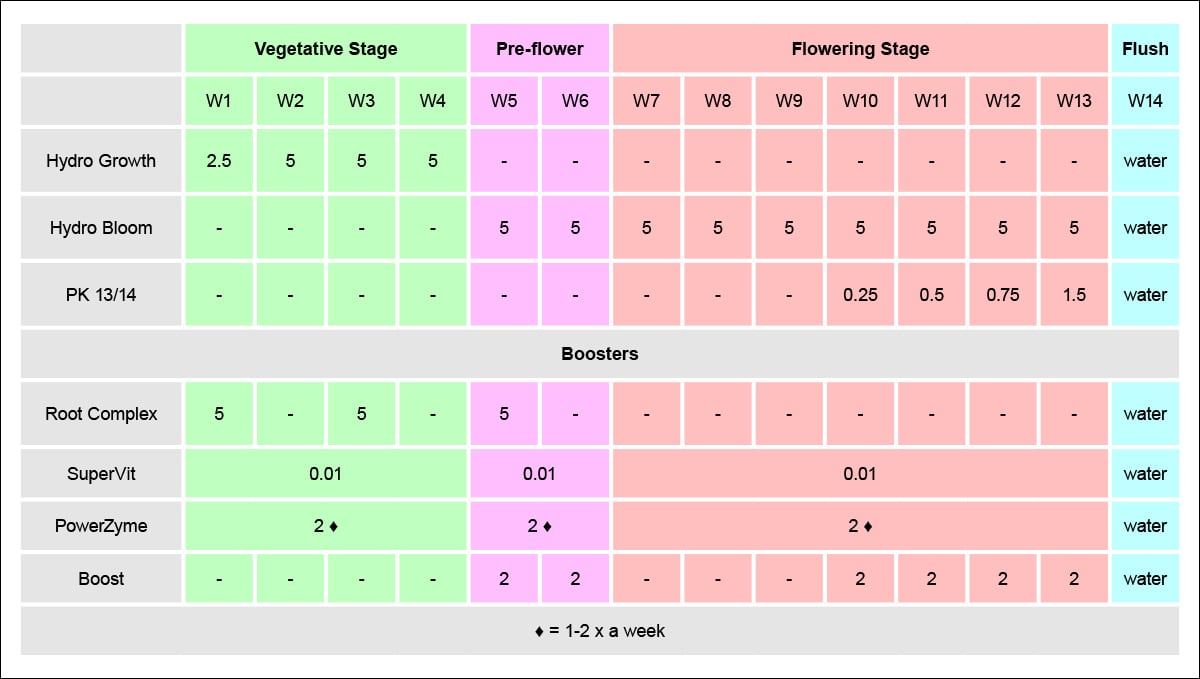
Remember that when growing in hydro it's highly recommended you check the pH and EC (or ppm) of the nutrient solution to avoid nutrient lockout and other problems, which can be quite grave when growing hydroponically due to the roots being in direct contact with the nutrient solution.
5. Hesi Feeding Schedule For Autoflowers
Now, as you may know by now, most fertilizers are designed for photoperiodic strains so when growing autoflowers, you will need to use a lower nutrient dose; This may vary depending on the strain you’re growing but most autoflowers usually need less nitrogen, so to make it simple for those of you growing autos, here’s a feeding chart for your autoflowers.
Have in mind that this table consists of slowly introducing nutrients to your plants so it shouldn’t cause overfeeding but if you see that your plant is having problems, either due to a lack of nutrient excess, make sure you adjust the nutrient dose accordingly.
Hesi Feeding Schedule For Autoflowers In Soil (ml/L)
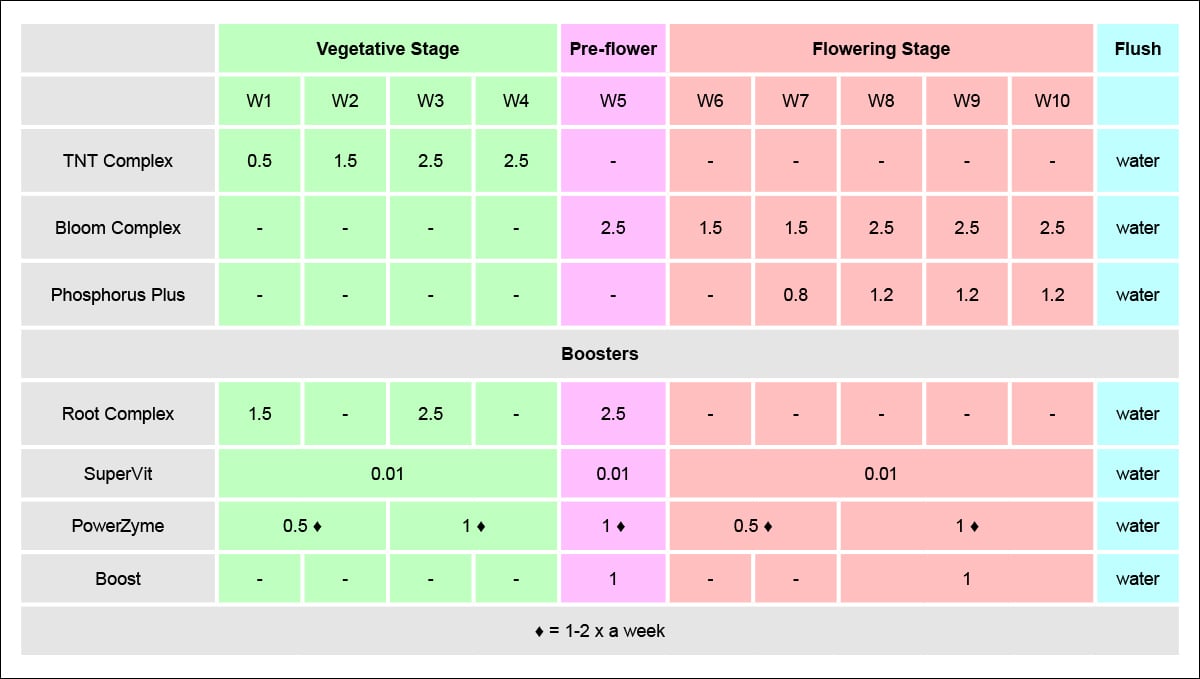
Just remember that this is a guideline and that all strains are different, some prefer more nutrients and some prefer less so it’s possible that you’ll have to adjust the nutrient dose depending on how your plants grow.
For those of you growing autoflowers in coco, the feeding schedule is quite similar but due to coco fiber being inert, you’ll have to provide a specific NPK ratio and a bit more phosphorus and potassium, that’s why you’ll be using HESI coco and PK 13/14 instead of Bloom complex and Phosphorus plus.
Hesi Feeding Schedule For Autoflowers In Coco (ml/L)

Remember that coco fiber retains more water than soil so if you live in a humid place, we recommend mixing 10-20% perlite to help oxygenate the environment and provide better conditions for the roots and the beneficial microorganisms.
6. The Difference Between Macro and Micronutrients
So, there it is. A complete feed guide for the full HESI nutrient range. But we haven't discussed why these nutrients are important, or how they help the plant develop into the best version of itself. To answer that, we need to look at the difference between macro- and micronutrients. But first, we have to quickly talk about the difference between mobile and immobile nutrients.
Nutrient Mobility
Mobile nutrients are those that can move freely throughout the plant, providing resources wherever they’re needed. The plant decides where these nutrients are most needed, and sends them straight there. Macronutrients such as nitrogen, phosphorus, and potassium are mobile. The three main macros - nitrogen (N), phosphorus (P), and potassium (K) - are all mobile, as are some of the micros. Immobile nutrients, on the other hand, can’t move around the plant. This means they have to be present in the right place at the right time, both in the soil and within the plant. The majority of micronutrients fit into this category, so it’s important to get them to spot on from the start.
Macronutrients
Macro-nutrients are essential for plant health, growth, and development. These are the main nutrients that cannabis (and all) plants need, and if you feed with just these three nutrients the crop will survive just fine. It won't reach its absolute peak, but it will definitely make it through to harvest. The 3 main macros are generally found in higher concentrations than micronutrients, but (and this may come as a surprise to many experienced cultivators) - Nitrogen, Phosphorus, and Potassium are not the only macros. Let's take a look at each one in detail, and discuss the role they play.
Nitrogen (N)
Nitrogen is the most important nutrient during the vegetative stage of growth which is why you will see it in higher concentrations in veg fertilizers. It is essential for the development of plant proteins and chlorophyll. Plants need nitrogen for strong stems, healthy foliage, vigorous growth and to set fruit or produce buds.
Phosphorus(P)
Phosphorus is essential during the flowering stage of cannabis plants as it helps with energy storage and transfer, flower formation, and is vital to root development. Phosphorus also helps to regulate cell division and allows the plant to use other nutrients more efficiently.
Potassium (K)
Potassium is important for overall strong growth, and it assists in controlling water absorption and balance, photosynthesis, and energy metabolism. Potassium increases a cannabis plant’s tolerance to environmental stress and is the most important nutrient in overall nutrient movement throughout the plant. It also helps with protein and amino acid absorption and is necessary for flowering density.
Calcium (Ca) - Low Mobility
Calcium is a partially mobile nutrient that helps to strengthen cell walls and helps with the processing of other nutrients. It encourages strong root development, is essential for organic acid neutralization, and plays an important secondary role in nitrogen absorption.
Magnesium (Mg) - Mobile
Magnesium is a mobile nutrient that helps to create chlorophyll and assists with photosynthesis. It also helps regulate nitrogen absorption and helps build strong cell walls. Magnesium is also important for the development of large, dense buds.
Sulfur (S) - Mobile
Sulfur is a mobile nutrient that helps form proteins and enzymes, as well as aiding in the formation of amino acids. It also helps to keep pH levels stable in the soil and helps with the absorption of phosphorus.
Water (H2O)
Often overlooked as a macro-nutrient (and isn't a true nutrient in itself), water is essential for the absorption of all other nutrients.
Carbon Dioxide (CO2)
Carbon dioxide is another essential element for cannabis growth and is key in the process of photosynthesis, which creates energy for the plant. CO2 is naturally found in the air. However, some indoor growers choose to provide additional CO2 to boost photosynthesis and increase yields.
Micronutrients
Micronutrients are essential to the health of a cannabis plant, but in smaller amounts than macros. Micronutrients are needed for enzyme activation and other metabolic processes, such as photosynthesis, respiration, nitrogen fixation, and protein synthesis. Also sometimes referred to as trace elements, this term is used scientifically to refer to elements with concentrations less than 1000 ppm.
While micronutrients are needed in smaller amounts than macros, this does not mean that they should be treated as less important. A deficiency in one or more micronutrients can severely affect the health and yield of a cannabis plant, so it’s important to make sure your nutrient solution includes all of them.
Iron (Fe) - Immobile
This micronutrient is essential in helping chlorophyll absorb light energy, which is necessary for healthy photosynthesis. It also plays a role in enzyme and amino acid formation. A deficiency in iron will cause stunted growth and yellowing of leaves.
Manganese (Mn) - Mobile
Manganese is necessary for photosynthesis, nitrogen fixation, and the formation of certain vital proteins. This element helps quicken the time it takes a plant to reach full maturity, and will promote faster seed germination.
Molybdenum (Mo)
Molybdenum is essential to nitrogen metabolism and will help a plant better absorb and use the nitrogen it takes in. It helps to balance the pH in cells and promotes a more robust plant structure overall.
Boron (B) - Immobile
Boron is an essential micronutrient for healthy plant growth and flowering. It helps with cell wall formation, and assists in the movement of sugars from the leaves to other parts of the plant, as well as within cells. Boron is not a micronutrient that you want your plant to become deficient in, as this will lead to some serious issues in the root zone. Leaves that are displaying a glossy texture may be a sign of boron deficiency, and the most common cause of this is the pH levels being too high.
Zinc (Zn) - Mobile
Zinc is essential for the formation of various plant enzymes and helps in the development of chlorophyll. Zinc also contributes to the development of strong, healthy stems and leaves.
7. In Conclusion
HESI offers a cheap and easy product line designed to provide growers of all levels what they need to grow good-quality cannabis or any other plant in any grow setup, from soil to aeroponics. If you have used HESI nutrients before and want to share your experience or if you are planning on using them but still have a couple of questions, feel free to leave a comment in the comment section below!








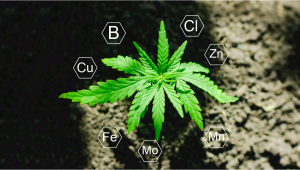
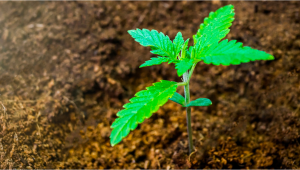
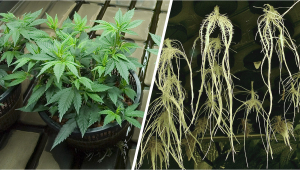

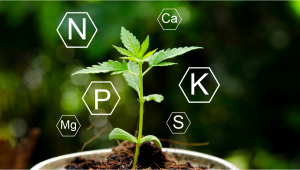


Comments